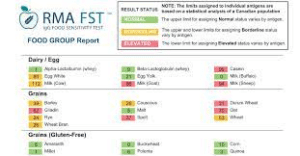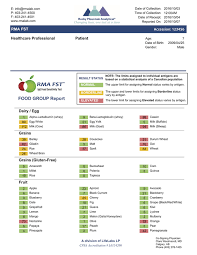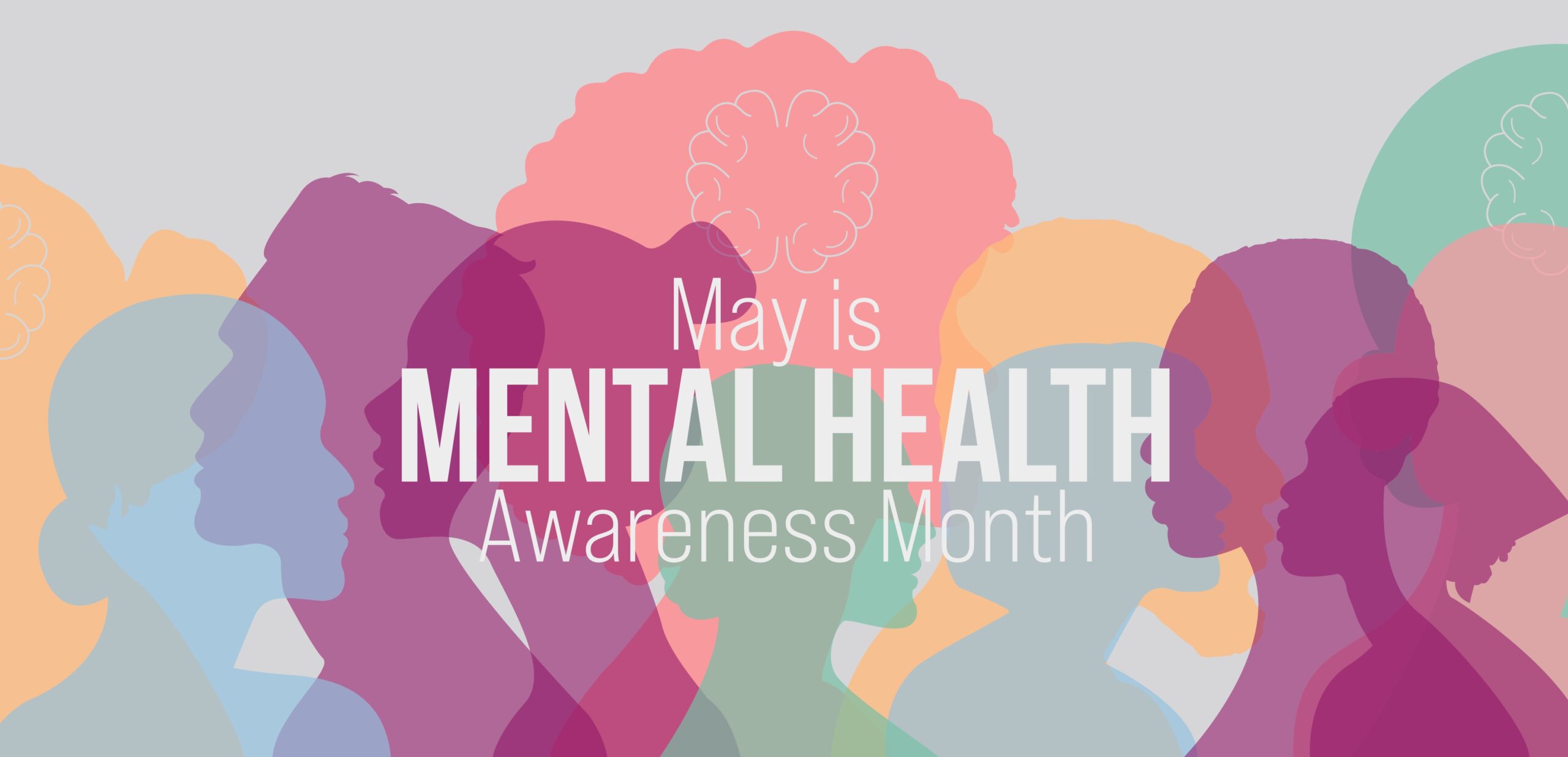
Feeling discomfort after eating certain foods or meals is an extremely common experience, and it can be discouraging when you feel awful after eating something you enjoy. You may have heard the term “food sensitivity” either on social media or perhaps even by a healthcare provider, and many companies now sell food sensitivity testing kits that claim to tell you exactly which foods are causing trouble and can therefore be eliminated from your diet for instant relief. The question is, however, do these tests even work? The short answer is no, and in this post we will be diving further into the limitations of these tests and what you can do to identify foods that trigger discomfort.
What is food sensitivity?
Interestingly, there isn’t an actual consensus amongst healthcare professionals as to what a food sensitivity actually is. The companies that sell food sensitivity tests claim that they can help identify foods that cause symptoms such as bloating, headaches, or abdominal pain. However, registered dietitians tend to use the term food intolerance, rather than sensitivity, to describe a food that may cause some unpleasant symptoms. A great example you’ve surely heard of is lactose intolerance, in which the body is unable to properly digest lactose which causes a multitude of uncomfortable symptoms.
Let’s first distinguish between a food intolerance or sensitivity and a food allergy. A food allergy is an immune response and can be life-threatening, such as a peanut allergy, or cause extreme discomfort like celiac disease, which is an autoimmune response to gluten. Food allergies can be detected by specific, well researched tests done by an allergy specialist.
What is the IgG food sensitivity test?
Although there are a few different types of food sensitivity tests on the market, the most popular one is called the IgG food sensitivity test. The name refers to immunoglobulin G, an antibody that is released when the body is exposed to a foreign substance, such as food. IgG food sensitivity tests claim that with a simple blood sample, IgG levels in response to 100 foods can be tested, which in theory would tell you which foods are causing a spike in IgG, and therefore are causing adverse reactions and discomfort.


It is very possible that many foods or ingredients cause discomfort for you which makes it difficult to discern exactly what to change or eliminate from your diet. This makes for a perfect marketing strategy for IgG tests, as they claim to test a large amount of food “sensitivities” in one convenient test. This is especially inviting, since specific testing is usually reserved for food allergies, since it is actually dangerous to consume food you are allergic to. The issue with IgG tests, however, is that there is virtually no scientific evidence that these tests even work, and that IgG levels actually correlate to intolerance to foods. In fact, many companies that sell tests refer to studies that are out of date, include inconclusive results, or don’t even include the measuring of IgG levels. This becomes problematic when these tests are marketed to the public as a catch all solution to discomfort after eating.
So why doesn’t the IgG test work, and what can I do instead?
Despite the marketing for these tests that you may have seen, the plain answer is that they simply don’t work. In fact, the Canadian Society of Allergy and Clinical Immunology (CSACI) has released a position statement not only denouncing the effectiveness of these tests, but also expressing concern that these tests are being widely distributed to consumers. The European Academy of Allergy and Clinical Immunology (EAACI) and the American Academy of Allergy, Asthma and Immunology have released similar literature reviews and statements strongly against direct-to-consumer food sensitivity tests.
 The bottom line is that there is no evidence that IgG levels are correlated to symptoms of discomfort, and in fact it was found that increased IgG levels can actually indicate that you’re tolerating a food, rather than being “sensitive” to it. It’s more than likely that having an IgG response to a food simply means you have been exposed to it repeatedly and is being properly dealt with by the immune system. It is also important to mention that these tests are rather expensive, often sold at a range of 200-700$, and large profits are being made from a test that not only has very little evidence to back it, but actually is disproven by trusted studies. Another potential risk arises when the results of these tests cause you to cut out certain foods from your diet completely even if they’re not the source of trouble, which could lead to nutrient deficiencies and even malnourishment!
The bottom line is that there is no evidence that IgG levels are correlated to symptoms of discomfort, and in fact it was found that increased IgG levels can actually indicate that you’re tolerating a food, rather than being “sensitive” to it. It’s more than likely that having an IgG response to a food simply means you have been exposed to it repeatedly and is being properly dealt with by the immune system. It is also important to mention that these tests are rather expensive, often sold at a range of 200-700$, and large profits are being made from a test that not only has very little evidence to back it, but actually is disproven by trusted studies. Another potential risk arises when the results of these tests cause you to cut out certain foods from your diet completely even if they’re not the source of trouble, which could lead to nutrient deficiencies and even malnourishment!
So you may be thinking, “Well, if the IgG test doesn’t work, what can I do to identify foods that trigger discomfort instead?”. First and foremost, if you’re experiencing abnormal discomfort after eating, it’s best to talk to a healthcare provider like a registered dietitian who might be able to identify the cause by asking a series of questions.  Our team of dietitians often start with a food symptom journal which includes tracking your dietary intake, mood and digestive symptoms. Keep in mind, people may do this alone but it is often recommended to have an outsider review the specific foods you may be having including ingredients and how they may impact you even several hours after consuming it. Once this record is completed, a dietitian might be able to observe certain patterns and identify foods that are causing certain symptoms.
Our team of dietitians often start with a food symptom journal which includes tracking your dietary intake, mood and digestive symptoms. Keep in mind, people may do this alone but it is often recommended to have an outsider review the specific foods you may be having including ingredients and how they may impact you even several hours after consuming it. Once this record is completed, a dietitian might be able to observe certain patterns and identify foods that are causing certain symptoms.
In some cases an elimination diet may be required but this is a last resort. We believe in identifying the specific foods that are impacting you rather than going to extreme measures of elimination and restriction. The most important thing to remember when discussing food sensitivity and intolerance is not to make any rash decisions or drastic diet changes due to the results of a test with less than favorable scientific evidence to back it up.
If you are concerned with symptoms you’re feeling after eating and would like to get to the bottom of it, speaking with a dietitian is the best way to find relief without compromising essential nutrients and falling into unhealthy habits. You can book a free discovery call with our dietitians here, and our team will be more than ready to help you out!
Sources:
https://www.ncbi.nlm.nih.gov/pmc/articles/PMC3443017/
https://pubmed.ncbi.nlm.nih.gov/18489614/
https://www.aaaai.org/tools-for-the-public/conditions-library/allergies/igg-food-test
https://www.sciencedirect.com/topics/medicine-and-dentistry/immunoglobulin-g
https://www.nytimes.com/2022/09/13/well/eat/food-sensitivity-test.html



